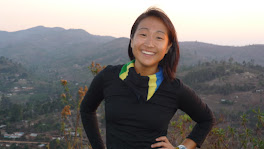As I'm sure was the case in the U.S., hardly one sentence was written without some mention of how "historic," "unprecedented," "significant," or "awesome" the inauguration would be. And the front pages leading up to January 20 reflected the joy and ecstasy of Kenyans.


The inauguration festivities weren't as wild as those for election night. (President Kibaki declared the following day a public holiday.) But it was, nonetheless, reason to celebrate as thousands went straight from work into bars.
Most national networks plugged in to CNN's coverage, occassionally breaking in to update viewers on what Obama's Kenyan relatives - those who flew to DC and those who remained in Kogelo - were doing. Kogelo, "the small village where [Obama's] father was born," has seen a boon in tourism since their native son's rise to the global stage. And, according to a local newspaper, "it is difficult to suppress the assumption that the 'development' would now spread to other areas of Kenya."
Yikes.






